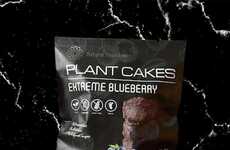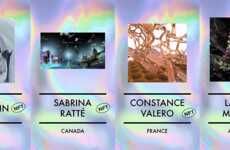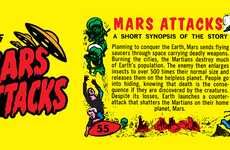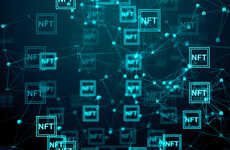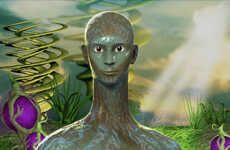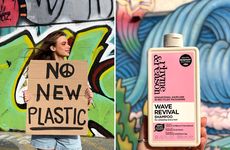
The First 'Living Eco-NFT' has Been Created by 'Desilu Productions'
Colin Smith — December 6, 2021 — Eco
References: desilu-studios & theverge
While NFTs typically have a license formed in digital code associated with them, Roddenberry Entertainment with biotech innovators Agustin Fernandez and Dr. Paul Predki built on the Solana blockchain, with support from Solana Labs and Metaplex Studios have created a new line of organic NFTs involving DNA and microorganisms. The NFT itself is a printed version of the signature of Gene Roddenberry, the original creator of Star Trek, which he signed on a contract with Desilu Productions in 1965.
The NFT has been created by implanting the DNA code of the NFT into a living cell. This involved a process of translating digital data, such as the code for an NFT, into organic data to match the DNA code found in small bacteria cells. Desilu Productions named this NFT 'El Primero,' or 'The First' signifying that it is the first NFT that does not damage the environment through the digital blockchain. Additionally, this cell can reproduce rapidly, creating a wide array of collectible Eco-NFTs.
Image Credit: Rob Lavers, Shutterstock
The NFT has been created by implanting the DNA code of the NFT into a living cell. This involved a process of translating digital data, such as the code for an NFT, into organic data to match the DNA code found in small bacteria cells. Desilu Productions named this NFT 'El Primero,' or 'The First' signifying that it is the first NFT that does not damage the environment through the digital blockchain. Additionally, this cell can reproduce rapidly, creating a wide array of collectible Eco-NFTs.
Image Credit: Rob Lavers, Shutterstock
Trend Themes
1. Living Eco-nfts - The creation of 'El Primero' opens up opportunities for the development of organic digital assets that do not harm the environment.
2. Biotech Nfts - The incorporation of DNA and microorganisms in NFTs creates a new genre of collectibles, paving the way for other biotech-inspired NFTs.
3. Organic Blockchain - The use of the Solana blockchain and microorganisms in creating eco-friendly NFTs may lead to other blockchain-based applications using organic data.
Industry Implications
1. Entertainment - The creation of organic NFTs provides opportunities for entertainment companies to create unique and sustainable collectibles for fans.
2. Biotech - The use of DNA and microorganisms in NFTs presents disruptive innovation opportunities for biotech firms seeking to explore novel applications in the digital space.
3. Blockchain - The development of organic blockchain-based assets may provide new opportunities for blockchain technology to be applied in environmentally responsible ways across a variety of industries.
6.2
Score
Popularity
Activity
Freshness





